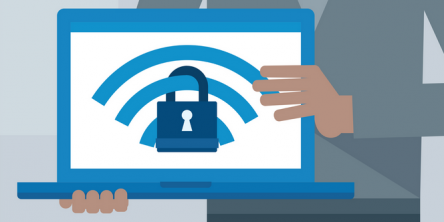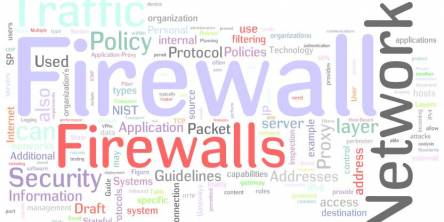Types of Elderly Fraud and How to Avoid Them

Senior citizens around the world constantly encounter elder fraud and there are times when it goes unnoticed. Although seniors are not the only ones who are swindled, they are an appealing target for scammers for a variety of reasons, including the fact that they often stay in their own homes, have a safety net in their savings, and are often more accepting of outsiders than the younger generation. Furthermore, elderly robbery victims are often unable to admit they have been conned because they are ashamed or afraid of being seen as helpless and incapable of managing their own dealings.
Therefore, it is important to recognise and understand that elderly care encompasses not only health but also physical, social, environmental, and emotional needs. These topics do not get as much attention as others, but they are equally critical. Financial harassment is one of the most common types of elder abuse today, and statistics show that about 90% of offenders are individuals the targets know and trust.
If you're a caregiver for the elderly, you'll appreciate the importance of these startling figures and why putting a stop to them is so important. And if you are a senior citizen, you cannot assume that this will never happen to you. Financial exploitation of the elderly is possible, and it can happen to everyone. As a result, understanding the threats and how to avoid them is critical and useful. But first, let's take a look at the different forms of scams that the elderly might fall victim to:
Internal Revenue Service (IRS) scams
Medicare phone scams
Silent calls and robocall scams
Charity scams
Counterfeit prescription medication
Funeral scams
Grandparent scams
Sweepstakes scams
Tech support scams
Sweetheart scams
Fake check scams
Fraudsters use a variety of tactics to target elderly adults and persuade them to participate in their schemes. In some situations, they may be respectful, caring, and eager to assist, while in others, they may play on the fear factor. Con artists' tactics vary based on the position they find themselves in with the senior.
What You Can Do to Protect Your Senior Loved One
1. Check on Them Regularly
Keep an eye on your senior loved one's financial position. Discuss or review bank transactions, bills, and emails. That way, you'll be able to distinguish between what's natural and what can be avoided.
2. Make Your Loved Ones Aware of Scams
Educate yourself and your senior loved ones on the many kinds of schemes, and make them understand how they can be duped and how they can be vulnerable to theft. Older adults can be unaware that people may be so evil, or that they can be so sly and cunning. As a result, it is critical to educate them about it and assist them in recognising fraud.
3. Appoint Someone Trustworthy to Manage Their Finances
There's nothing quite like managing your loved one's finances. If you aren't comfortable doing or aren't equipped to do it skill-wise, make sure the role of a financial planner is assigned to someone you and your family are familiar with and can trust. When you or your loved ones' funds are handled by a financial planner, the fraudster would have to go through them first, making it impossible to deceive a financial advisor.
4. Put Safeguards in Place at the Bank
If you are concerned with your loved ones' financial decisions, open a small account for them at a nearby bank. The account might, for instance, contain a debit card with a set spending cap. Such funds, if any, can be saved in a more stable account this way.
5. Screen Your Loved Ones’ Caregivers
If you’re a family caregiver, nothing like it. But, if you’re hiring external elderly care assistance, you need to make sure that you’ve hired a good one. The majority of nurses are loving, caring individuals who are committed to their patient’s welfare and well-being. However, some people take advantage of their status in order to financially manipulate the elderly. Unfortunately, many elderly people do not report such frauds because they are dependent on their caregivers in any way. In such a case, family members should persuade them to mention even the tiniest of irregularities. On a regular basis, the family should keep an eye on the caregiver's schedule.
Similar Articles
Learning how to avoid being in danger on the Internet is important. Online predators and identity thieves have been a problem since Who created the Internet many years ago.
With the rapid growth of digital transformation and communication, various issues related to information security are also rapidly increasing and gaining importance. The messages and information that are shared publicly through accessible computer networks should be kept confidential and also protected against any manipulation.
Data security has become a requirement for almost every enterprise in the modern era, no matter its size. Most businesses in the digital world rely on transactions and data storage to perform most of their operations. Data usage has increased the efficiency and profitability of companies.
Cybersecurity is now an integral as well as a crucial aspect of running a business from any niche. If you think that the knowledge and expertise of Cybersecurity is required for only specific business domains, then it’s time for a revelation.
Is there a need to protect the data? Yes, it is. Hackers use different techniques to hack the data of your entrepreneur or organization & choose to misuse or demand payment for the data or information that has got hack.
Many small and medium-sized businesses are witnessing an increased threat from cybercriminals who attempt to intrude into computer infrastructure networks for financial gain or identity theft. The U.S. Congressional Small Business Committee reported that 71 percent of cyber attacks were directed at small business enterprises.
Internet World is doomed with hackers, blackhats and spamming bots which are constantly evolving according to time. No place on internet is a safe place to start a conversation or share data.



3db5.jpg)



